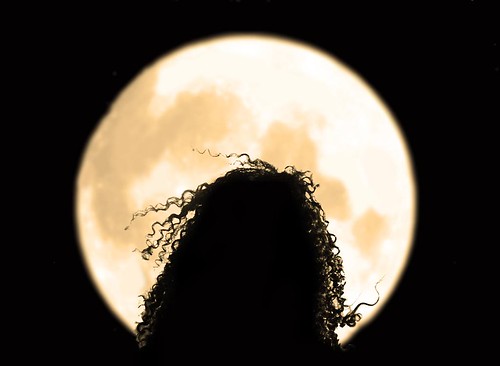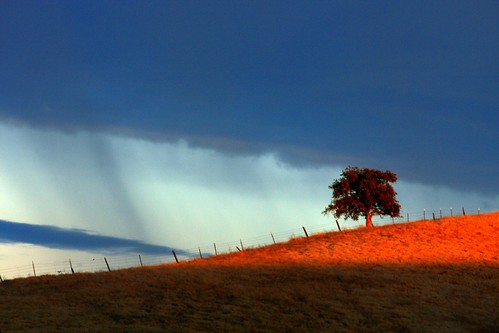whether you live always in sadness Why do the tall pine and white poplar Bring wines and perfumes and the too-brief You'll leave your boughten lands and your house you're rich and of ancient lineage We are all gathered to the same place: HORACE* *(Quintus Horatius Flaccus, Venusia, December 8, 65 BC – Rome, November 27, 8 BC, known in the English-speaking world as Horace, was the leading Roman lyric poet during the time of Augustus.)Keep A Tranquil Mind
Remember in difficult times to
keep a tranquil mind, and in good times
to keep from becoming overjoyed,
my Dellius who is yet to die,
or on festal days in far-off field
reclining you take delight in a
famed vintage of Falernian wine.
love to unite their foliage in
inviting shade? Why does the rushing
water press on through its winding banks?
flower that blooms on the lovely rose
while good fortune and our youth allow,
and the dark threads of the three Sisters.
in the country, washed by the Tiber —
you'll leave them, and some heir will acquire
the wealth you piled high. And whether
or you're poor and sleep beneath the stars,
in the end it makes no difference: for
pitiless Orcus will have your soul.
the lot of all is turned in the urn
of Fate, who will come forth and place us
in the skiff, for eternal exile.
Showing posts with label Greek poets. Show all posts
Showing posts with label Greek poets. Show all posts
Wednesday, August 25, 2010
Serenity
labels:
Greek poets,
Horace,
photography,
photos,
poetry,
Rome,
serenity
Monday, May 31, 2010
φλαμουρία
Στη βρύση τη βουνίσια
σιμά είν' η φλαμουριά,
στον ίσκιο της καθόμουν
να ονειρευτώ συχνά.
Εχάραζα στη φλούδα
ονόματα ιερά
και πάντα εκεί γυρνούσα
σε λύπη ή σε χαρά.
Μια μέρα ταξιδεύω
σε μέρη μακρινά,
περνώ να χαιρετήσω
στερνά τη φλαμουριά.
Βουΐζαν τα κλαδιά της
σαν να μου κράζαν:
"Ω, κοντά μου πάντα μείνε,
θα βρεις γαλήνη εδώ".
Μακριά τώρα στα ξένα
δεν έχω την χαρά
που ένοιωθα εκεί πάνω,
κοντά στη φλαμουριά.
Στο νου μου πάντα μένει
το ολόχαρο χωριό,
στ' αυτιά μου ακούω πάντα:
"Θα βρεις γαλήνη εδώ".
"Ποταμοῖς τοῖς αὐτοῖς ἐμβαίνομέν τε καὶ οὐκ ἐμβαίνομεν, εἶμέν τε καὶ οὐκ εἶμεν." "We both step and do not step in the same rivers. We are and are not." Heraclitus the Riddler

σιμά είν' η φλαμουριά,
στον ίσκιο της καθόμουν
να ονειρευτώ συχνά.
Εχάραζα στη φλούδα
ονόματα ιερά
και πάντα εκεί γυρνούσα
σε λύπη ή σε χαρά.
Μια μέρα ταξιδεύω
σε μέρη μακρινά,
περνώ να χαιρετήσω
στερνά τη φλαμουριά.
Βουΐζαν τα κλαδιά της
σαν να μου κράζαν:
"Ω, κοντά μου πάντα μείνε,
θα βρεις γαλήνη εδώ".
Μακριά τώρα στα ξένα
δεν έχω την χαρά
που ένοιωθα εκεί πάνω,
κοντά στη φλαμουριά.
Στο νου μου πάντα μένει
το ολόχαρο χωριό,
στ' αυτιά μου ακούω πάντα:
"Θα βρεις γαλήνη εδώ".

Wednesday, May 26, 2010
Ελπίδα.......
Σας είδα κάτω από την πύρινη βροχή
με τα πλακάτ και τα σκουτιά τα ματωμένα
Εσάς που κάματε τη δύσκολη αρχή
κείνα τα χρόναι τα βαριά τα κολασμένα.
Σήμερα πάλι βλέπω τα δικά σας τα παιδιά
σμάρι μες του πελάγου τη Σπηλιάδα
για όσους πάνε να σταυρώσουν την Ελλάδα...
Νίκος Καββαδίας.
"Ποταμοῖς τοῖς αὐτοῖς ἐμβαίνομέν τε καὶ οὐκ ἐμβαίνομεν, εἶμέν τε καὶ οὐκ εἶμεν." "We both step and do not step in the same rivers. We are and are not." Heraclitus the Riddler
με τα πλακάτ και τα σκουτιά τα ματωμένα
Εσάς που κάματε τη δύσκολη αρχή
κείνα τα χρόναι τα βαριά τα κολασμένα.
Σήμερα πάλι βλέπω τα δικά σας τα παιδιά
σμάρι μες του πελάγου τη Σπηλιάδα
για όσους πάνε να σταυρώσουν την Ελλάδα...
Νίκος Καββαδίας.

labels:
Greek poets,
photography,
poetry,
thoughts
Τόπος:
Ελλάς
Thursday, April 15, 2010
The Great Orion Nebula...and N.Vrettakos
The Great Orion Nebula
The Orion Nebula (also known as Messier 42, M42, or NGC 1976) is a diffuse nebula situated south[b] of Orion's Belt. It is one of the brightest nebulae, and is visible to the naked eye in the night sky. M42 is located at a distance of 1,344 ± 20 light years and is the closest region of massive star formation to Earth. The M42 nebula is estimated to be 24 light years across. Older texts frequently referred to the Orion Nebula as the Great Nebula in Orion or the Great Orion Nebula.
The Orion Nebula is one of the most scrutinized and photographed objects in the night sky, and is among the most intensely studied celestial features. The nebula has revealed much about the process of how stars and planetary systems are formed from collapsing clouds of gas and dust. Astronomers have directly observed protoplanetary disks, brown dwarfs, intense and turbulent motions of the gas, and the photo-ionizing effects of massive nearby stars in the nebula. There are also supersonic "bullets" of gas piercing the dense hydrogen clouds of the Orion Nebula. Each bullet is ten times the diameter of Pluto's orbit and tipped with iron atoms glowing bright blue. They were probably formed one thousand years ago from an unknown violent event.
======================================
N. Vrettakos was born in the village of Kokees, near Sparta, and published his first collection of poems, Under Shadows and Lights, in 1929, at the age of seventeen. That same year he moved to Athens to attend university, but left after a year to take a series of jobs as a clerk in various businesses. In 1937 he began a thirty year career in the Greek Civil Service, also seeing combat service in the Greco-Italian War during this period. In 1967 he responded to the takeover of Greece by a military dictatorship by going into self-imposed exile in Switzerland and Italy, where he remained until returning to Greece in 1974. He also wrote a poem about Kostas Georgakis, the student who set himself ablaze in Genoa as a protest against the junta.
Nikiphoros Vretttakos was considered one of Greece's most important poets. He won a number of prizes and medals, including the Greek State Poetry Prize twice. Some of his poems became popular songs in musical settings by Greek composers, including Mikis Theodorakis. His verse was also translated into many languages. He was also elected as a member of the Academy of Athens in 1987.
Uploaded by brexians on 15 Apr 10, 10.31AM EEST.
"Ποταμοῖς τοῖς αὐτοῖς ἐμβαίνομέν τε καὶ οὐκ ἐμβαίνομεν, εἶμέν τε καὶ οὐκ εἶμεν." "We both step and do not step in the same rivers. We are and are not." Heraclitus the Riddler
The Orion Nebula (also known as Messier 42, M42, or NGC 1976) is a diffuse nebula situated south[b] of Orion's Belt. It is one of the brightest nebulae, and is visible to the naked eye in the night sky. M42 is located at a distance of 1,344 ± 20 light years and is the closest region of massive star formation to Earth. The M42 nebula is estimated to be 24 light years across. Older texts frequently referred to the Orion Nebula as the Great Nebula in Orion or the Great Orion Nebula.
The Orion Nebula is one of the most scrutinized and photographed objects in the night sky, and is among the most intensely studied celestial features. The nebula has revealed much about the process of how stars and planetary systems are formed from collapsing clouds of gas and dust. Astronomers have directly observed protoplanetary disks, brown dwarfs, intense and turbulent motions of the gas, and the photo-ionizing effects of massive nearby stars in the nebula. There are also supersonic "bullets" of gas piercing the dense hydrogen clouds of the Orion Nebula. Each bullet is ten times the diameter of Pluto's orbit and tipped with iron atoms glowing bright blue. They were probably formed one thousand years ago from an unknown violent event.
======================================
N. Vrettakos was born in the village of Kokees, near Sparta, and published his first collection of poems, Under Shadows and Lights, in 1929, at the age of seventeen. That same year he moved to Athens to attend university, but left after a year to take a series of jobs as a clerk in various businesses. In 1937 he began a thirty year career in the Greek Civil Service, also seeing combat service in the Greco-Italian War during this period. In 1967 he responded to the takeover of Greece by a military dictatorship by going into self-imposed exile in Switzerland and Italy, where he remained until returning to Greece in 1974. He also wrote a poem about Kostas Georgakis, the student who set himself ablaze in Genoa as a protest against the junta.
Nikiphoros Vretttakos was considered one of Greece's most important poets. He won a number of prizes and medals, including the Greek State Poetry Prize twice. Some of his poems became popular songs in musical settings by Greek composers, including Mikis Theodorakis. His verse was also translated into many languages. He was also elected as a member of the Academy of Athens in 1987.
Uploaded by brexians on 15 Apr 10, 10.31AM EEST.

labels:
cosmos,
Greek poets,
photography,
poetry,
science fiction v.s. reality,
space,
thoughts
Monday, March 9, 2009
ILIAD the best epic story
The Iliad (Greek: Ἰλιάς [iliás] (Ancient), Ιλιάδα [ili'aða] (Modern)) is, together with the Odyssey, one of two ancient Greek epic poems traditionally attributed to Homer. However, the claim of a single author is disputed, as the poems show evidence of a long oral tradition and hence, possible multiple authors.
Many scholars believe the poem to be the oldest extant work of literature in the ancient Greek language. For most of the 20th century, both the Iliad and the Odyssey have been commonly dated to the late 9th or 8th century BC.
Most still hold this view, notably Barry B. Powell (who has proposed a link between the writing of the Iliad and the invention of the Greek alphabet), G.S. Kirk, and Richard Janko. However a few others, such as Martin West and Richard Seaford, now prefer a date in the 7th or even the 6th century BC.
The poem concerns events during the ninth year of the Trojan War, the siege of the city of Ilion or Troy, by the Greeks. The plot centers on the Greek warrior Achilles and his anger toward the king of Mycenae, Agamemnon, which proves disastrous for the Greeks. It provides many of the events that the later poems of the Epic Cycle build on, including the death of the Trojan captain Hector.
Written in dactylic hexameter, the Iliad comprises 15,693 lines of verse. Later ancient Greeks divided it into twenty-four books or scrolls, a convention that has lasted to the present day with little change.
The word Iliad means "pertaining to Ilios" (in Latin, Ilium), the city proper, as opposed to Troy (in Greek, Τροία, Troía; in Latin, Troia, Troiae, f., in Turkish Truva), the state centered around Ilium.

thanks http://msaleem-stumbl.stumbleupon.com/
"Ποταμοῖς τοῖς αὐτοῖς ἐμβαίνομέν τε καὶ οὐκ ἐμβαίνομεν, εἶμέν τε καὶ οὐκ εἶμεν."
"We both step and do not step in the same rivers. We are and are not."
Heraclitus the Riddler

Many scholars believe the poem to be the oldest extant work of literature in the ancient Greek language. For most of the 20th century, both the Iliad and the Odyssey have been commonly dated to the late 9th or 8th century BC.
Most still hold this view, notably Barry B. Powell (who has proposed a link between the writing of the Iliad and the invention of the Greek alphabet), G.S. Kirk, and Richard Janko. However a few others, such as Martin West and Richard Seaford, now prefer a date in the 7th or even the 6th century BC.
The poem concerns events during the ninth year of the Trojan War, the siege of the city of Ilion or Troy, by the Greeks. The plot centers on the Greek warrior Achilles and his anger toward the king of Mycenae, Agamemnon, which proves disastrous for the Greeks. It provides many of the events that the later poems of the Epic Cycle build on, including the death of the Trojan captain Hector.
Written in dactylic hexameter, the Iliad comprises 15,693 lines of verse. Later ancient Greeks divided it into twenty-four books or scrolls, a convention that has lasted to the present day with little change.
The word Iliad means "pertaining to Ilios" (in Latin, Ilium), the city proper, as opposed to Troy (in Greek, Τροία, Troía; in Latin, Troia, Troiae, f., in Turkish Truva), the state centered around Ilium.

thanks http://msaleem-stumbl.stumbleupon.com/
"We both step and do not step in the same rivers. We are and are not."
Heraclitus the Riddler

labels:
books,
Greek mythology.,
Greek poets
Τόπος:
トルコの世界遺産, Τουρκία
Sunday, January 25, 2009
Athens, a poem by Kostas Karyiotakis
Athens
A sweet hour. Athens sprawls like a hetaira
offering herself to April.
Sensuous scents are in the air,
the spirit waits for nothing any more.
The silver of the evening's eyelids
droops, grows heavy up above the houses.
Queenlike the Acropolis puts on
the sunset's crimson like a robe.
The first star rises with a kiss of light.
A zephyr by Ilissus falls in love with
quivering laurels, rosy nymphs.
A sweet hour of delight and love, when
small birds chasing one another raise a wind
that beats upon a column of Olympian Zeus...
a marvelous poem by K. Karyiotakis
and
a vivid photo by Italida
which i dedicate to Athens my birthplace which wounded lately

"We both step and do not step in the same rivers. We are and are not."
Heraclitus the Riddler

labels:
Democracy,
Greek poets,
thoughts
Τόπος:
Αττικη, Ελλάδα
Wednesday, January 21, 2009
Santorini - The naked child

Bend if you can to the dark sea forgetting
the flute's sound on naked feet
that trod your sleep in the other, the sunken life.
Write if you can on your last shell
the day the place the name
and fling it into the sea so that it sinks.
We found ourselves naked on the pumice stone
watching the rising islands
watching the red islands sink
into their sleep, into our sleep.
Here we found ourselves naked, holding
the scales that tipped toward injustice.
Instep of power, unshadowed will, considered love,
projects that ripen in th emidday sun,
course of fate with a young hand
slapping the shoulder;
in the land that was scattered, that can't resist,
in the land that was once our land
the islands, -rust and ash- are sinking.
Altars destroyed
and friends forgotten
leaves of the palm tree in mud.
Let your hands go traveling if you can
here on time's curve wtih the ship
that touched the horizon.
When the dice struck the flagstone
when the lance struck the breast-plate
when the eye recognized the stranger
and love went dry
in punctured souls;
when looking round you see
feet harvested everywhere
dead hands everywhere
eyes darkened everywhere;
when you can't any longer choose
even the death you wanted as your own-
hearing a cry,
even the wolf's cry,
your due:
let your hands go traveling if you can
free yourself from unfaithful time
and sink-
So sinks whoever raises the great stones.
Giorgos Seferis
"We both step and do not step in the same rivers. We are and are not."
Heraclitus the Riddler

Thursday, December 18, 2008
we who are left


"We Who are Left"
will burn bitter incense for the dead,
and when Charon the wrestler, new prey found,
has packed up his caravan and fled,
we'll dance in their memory round and round.
We who are left will begin each day
with a fresh-cut slice of the sun's rich bread -
golden honeycomb on a golden tray -
and now untouched by the sickle of dread
we'll steer our life forward on its way.
We who are left will scatter one dawn
seeds of grass on the desert's face,
and before night cuts us down like corn
we'll make earth into a holy place,
a cradle for children still unborn.,
Niko Gatsos
Translated by E.Keely & P.Sherrard
"We both step and do not step in the same rivers. We are and are not."
Heraclitus the Riddler

labels:
Greek poets,
lyrics,
poetry,
thoughts
Subscribe to:
Posts (Atom)



